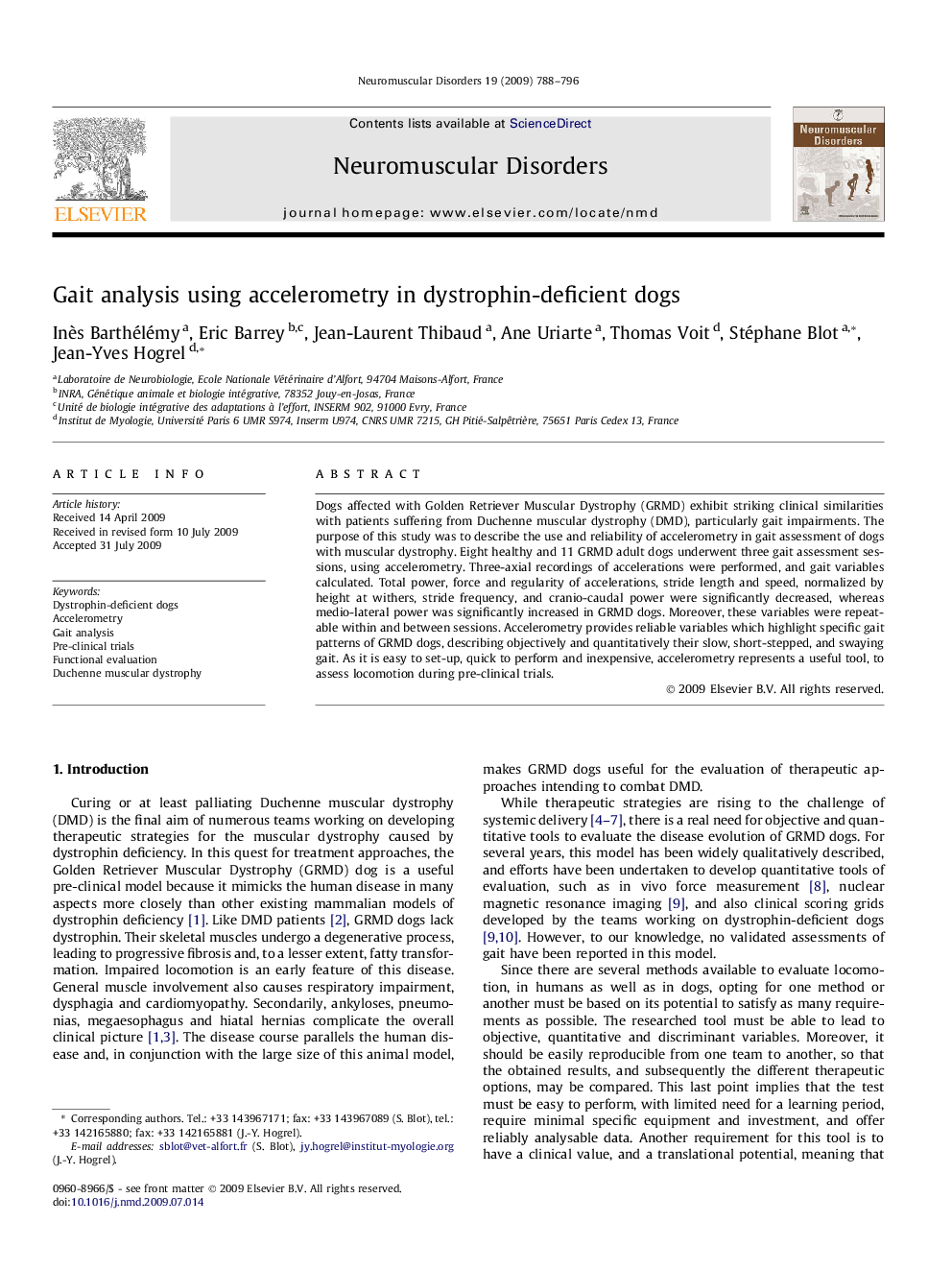| Article ID | Journal | Published Year | Pages | File Type |
|---|---|---|---|---|
| 3080720 | Neuromuscular Disorders | 2009 | 9 Pages |
Abstract
Dogs affected with Golden Retriever Muscular Dystrophy (GRMD) exhibit striking clinical similarities with patients suffering from Duchenne muscular dystrophy (DMD), particularly gait impairments. The purpose of this study was to describe the use and reliability of accelerometry in gait assessment of dogs with muscular dystrophy. Eight healthy and 11 GRMD adult dogs underwent three gait assessment sessions, using accelerometry. Three-axial recordings of accelerations were performed, and gait variables calculated. Total power, force and regularity of accelerations, stride length and speed, normalized by height at withers, stride frequency, and cranio-caudal power were significantly decreased, whereas medio-lateral power was significantly increased in GRMD dogs. Moreover, these variables were repeatable within and between sessions. Accelerometry provides reliable variables which highlight specific gait patterns of GRMD dogs, describing objectively and quantitatively their slow, short-stepped, and swaying gait. As it is easy to set-up, quick to perform and inexpensive, accelerometry represents a useful tool, to assess locomotion during pre-clinical trials.
Related Topics
Life Sciences
Neuroscience
Developmental Neuroscience
Authors
Inès Barthélémy, Eric Barrey, Jean-Laurent Thibaud, Ane Uriarte, Thomas Voit, Stéphane Blot, Jean-Yves Hogrel,
